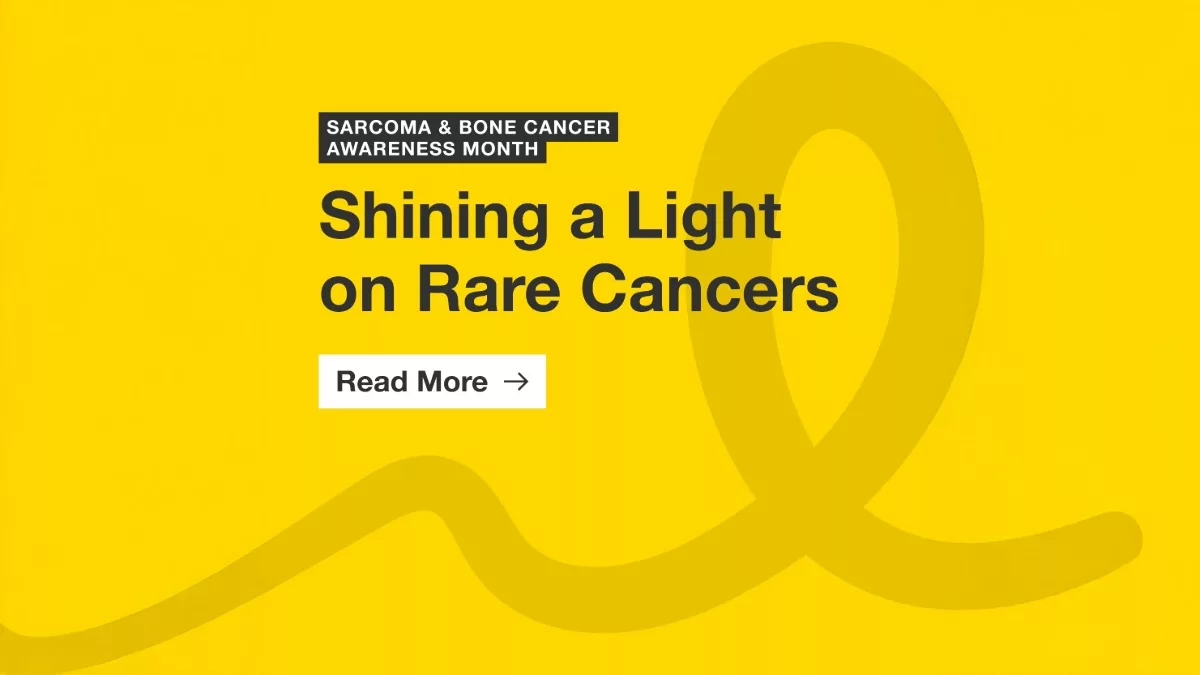Every July, we recognize Sarcoma & Bone Cancer Awareness Month, a time to increase understanding, support those affected, and elevate research for these rare and often overlooked cancers.
What is Sarcoma?
Sarcoma is a rare type of cancerous tumor that begins in the body’s connective tissues (bones, muscles, fat, cartilage, nerves, tendons, and blood vessels). It can occur anywhere in the body and affects both children and adults but is most often formed in the legs, chest/abdomen, arms, or head and neck.
Sarcomas are divided into two main categories:
- Soft Tissue Sarcomas: begin in muscles, fats, nerves, or tendons (angiosarcoma, desmoplastic small round cell tumors, etc.)
- Bone Sarcomas: begin in the bone itself (osteosarcoma, Ewing sarcomas, etc.)
Together, these cancers make up less than 1% of all adult cancers but are more common in children and young adults.
How Sarcoma Differs from Other Cancers
Most cancers are classified as carcinomas, which typically begin in major organs like the lungs, breast, or colon. These cancers often spread through the lymphatic system or bloodstream to other parts of the body.
Sarcomas, however, behave differently. They usually begin in connective tissues, like bones, muscles, or fat, and rarely originate in the organs. Instead of spreading through lymph nodes, sarcomas are more likely to travel through the bloodstream, often reaching the lungs, live, or in rare cases, the brain. This distinction is important in understanding how sarcoma progresses and how it’s treated.
Common Signs and Symptoms
While symptoms vary based on type and location, here are a few to be aware of:
- A lump or swelling (often painless at first)
- Pain in a bone or soft tissue that doesn’t go away
- Limited range of motion or joint function
- Numbness or tingling
- Unexplained fractures/pathological fractures
If any of these symptoms persist for you or a loved one, especially in combination, it’s important to consult a healthcare provider.
Why Awareness Matters
Because sarcomas are rare and often present with vague symptoms like swelling or pain, they can be misdiagnosed or overlooked. Early detection is critical, yet many patients face delays in diagnosis. Increased awareness can lead to earlier detection, better outcomes, and more attention to research funding.
Support for Patients and Families
A sarcoma diagnosis can feel isolating, but you are not alone. Throughout Sarcoma & Bone Cancer Awareness Month, we honor those impacted and provide resources to help:
- Sarcoma Foundation of America: offers advocacy, education, and patient support
- Bone Cancer Research Trust: a central hub for patients and families navigating bone cancer
- American Cancer Society Sarcoma and Bone Cancer: provides clinical information, care support, and survivor resources
Sarcoma and bone cancers may be rare, but the strength of the community is powerful. This month, and every month, we support patients, survivors, caregivers, and advocates to raise awareness and push for progress.


